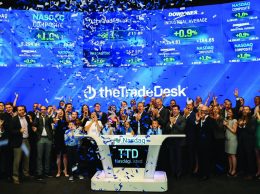What in the world is going on?
At press time, the New York Stock Exchange was having technical difficulties, United Airlines had just resumed flying after a computer malfunction, Greece was on the precipice of leaving the Eurozone and China’s stock market was in a free fall.
That’s a heck of an interruption to what has traditionally been known as the summer doldrums. We’re fairly confident that whatever is ailing the NYSE and the United computer systems will get sorted out – so far neither seems to have the serious implications of last year’s hacking of Sony’s computer system or the U.S. government’s personnel files.
But Greece, and particularly China, are another matter. While the world has been hoping for a resolution to the Greek debt crisis that keeps the world’s oldest democracy in the Eurozone, the events of July have taken such a huge toll on the Greeks and their banking system that it’s hard to see how substantial losses on both sides can be avoided.
Leaving the Euro will essentially devalue all Greek assets and render its pensions worth a fraction of their current value. A solution that keeps Greece in the Eurozone will mean French and
German banks will have to swallow years of forbearance and ultra-low returns on Greek bonds for years and perhaps decades to come.
Meanwhile, China is now confronting the risks of its go-go growth strategy of the past decade. As its stock market falters, the risks to its overextended banking system also are being unmasked.
China is so opaque in terms of economic data that it’s hard to gauge how much of an effect these problems will have in the long term.
But we’re inclined to agree with CNBC commentators that a sharp decline in the Shanghai stock market will have a wealth effect that could disrupt China’s shift from an export-oriented country to a consumer society.
In the worst case scenario, we will revisit the late 1980s when the rapid rise of Japan was derailed by that country’s housing price collapse. Japan has not recovered decades later.
Compared to Japan of 25 years ago, China has more controls in place to put the brakes on a faltering economy. But it may be that the world’s No. 2 economy has to hit the pause button on its plan to displace the U.S. as No. 1. With an aging population and much greater demand for services looming in the intermediate term, that pause may last quite a while.
Meanwhile, the U.S. economy seems to be chugging along. Warren Buffett has talked about the “staggering advantages” he and Vice Chairman Charlie Munger have enjoyed because they were born in the U.S. In a post-July 4 week when the world seems to be fraying at the edges, that’s something to keep in mind.
In memoriam: Bill Keeler
We extend our condolences to the members of the Rubicon Theater family who lost a respected actor-director earlier this summer when Bill Keeler died at age 71, following a massive heart attack.
The Rubicon has put itself on the map as an important regional theater and become an anchor in the city of Ventura’s revival as a cultural center. Keeler, a Ventura resident, had strong connections to the region having received his M.A. and Ph.D. degrees from UC Santa Barbara.
A celebration of his life will be held at 4 p.m. on July 19 at the Rubicon.






 Print
Print Email
Email

















